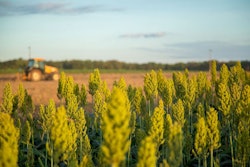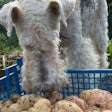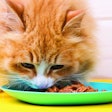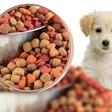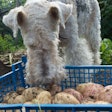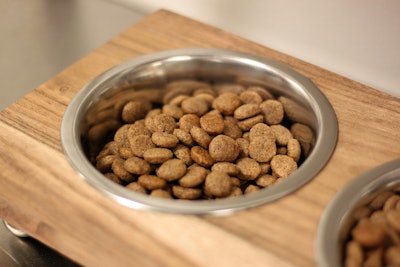
A recent study published in Animal Feed Science and Technology focused on the effects of single- and twin-thermal screw extrusion on protein quality of grain-free pet foods formulated with animal- or plant-based ingredients.
While animal protein has dominated the pet food market, alternative protein sources are becoming more available and plant proteins in pet diets are gaining interest. The study's authors noted pulses, often found in grain-free diets, are high in protein and could replace animal proteins. While there has been research on their nutrient content and effects on dog health, little is known about the amino acid availability when pulses are added to diets.
Extrusion, the most common method for making pet food, commands 57% of the U.S. dry canine diet market. However, the effect of extrusion on nutrients and the potential interaction of extrusion and protein sources has not been studied extensively in pet food, noted the authors. Some studies have shown that different protein and carbohydrate sources can change the extrusion process and kibble quality in dog foods. Other studies found that plant proteins are easier to digest after extrusion. This knowledge gap created uncertainties of whether the mechanical and temperature stress could lead to changes in protein quality in extruded canine diets.
This study aimed to determine how extrusion and pulses affect amino acid digestibility and protein quality.
The study
Eight grain-free diet formulations were designed: chicken byproduct meal diet, chicken slurry diet, chicken slurry + yellow pea diet, yellow pea diet, green lentil diet, garbanzo bean diet, chicken slurry + taurine diet, and chicken slurry + yellow pea + taurine diet. All diets were formulated to be complete and balanced for adult canine at maintenance according to the Association of American Feed Control Officials (AAFCO). The ingredients were sourced and mixed at ADM Nutrition Center at Effingham, Illinois, U.S.. All diets were manufactured at Wenger Pilot Plant at Sabetha, Kansas, U.S.
Two types of extruders were used: single screw and twin screw. One batch of the eight formulas went through a single-screw extruder Model X115 and the other batch of the same formulas went through a twin-screw extruder Model TT760. Diet samples were taken at three processing time points: raw ingredients, at the end of the preconditioner, and at the end of the extruder.
The 48 diet samples were analyzed for chemical composition and fed to cecectomized roosters to determine standardized ileal amino acid digestibility and Digestible Indispensable Amino Acid Score (DIAAS)-like values.
The results
Even though the diets were mostly similar in their makeup, methionine content was lower in those with yellow pea and green lentil. The study found extrusion processing did not harm the natural or synthetic taurine in the diets.
Preconditioning and extrusion also improved amino acid digestibility and protein quality in most diets, making them well-digested and high quality. Based on reference protein sources, tryptophan and methionine were the most limited amino acids in all diet samples.
The study concluded grain-free diets can provide good protein quality for dogs, and extrusion processing increases amino acid digestibility and protein quality.
- Amino acids are easier to digest after extrusion compared to raw ingredients.
- Extrusion does not reduce the amount of natural or synthetic taurine in dog food.
- Protein quality in pet food improves after extrusion compared to raw ingredients.
- Grain-free dog foods with 40% pulses have good protein quality after extrusion.
- Methionine and tryptophan are the most limited amino acids in the tested grain-free diets.
Study: Effects of single and twin thermal screw extrusion on protein quality of grain-free pet foods formulated with predominantly animal- or plant-based protein ingredients
Clare Hsu, Pamela L. Utterback, Carl M. Parsons, Gary M. Davenport, Galen Rokey, Maria R.C. de Godoy


